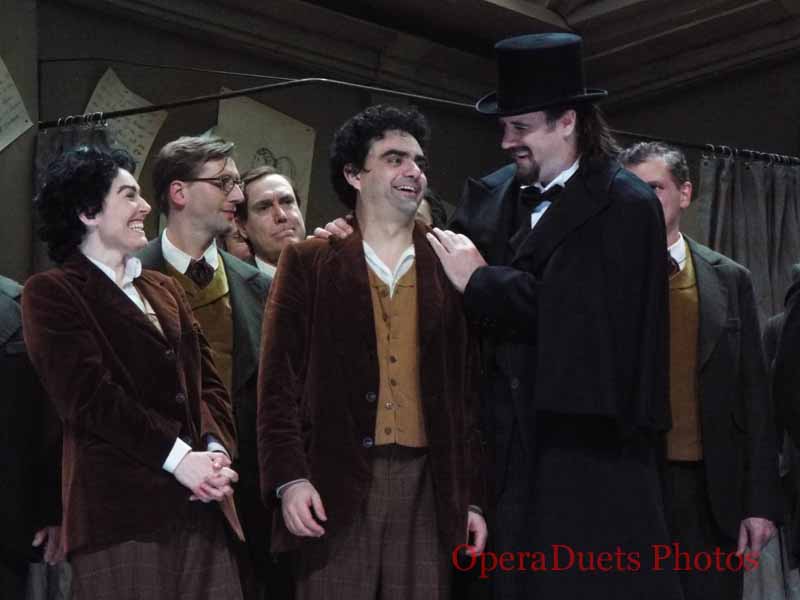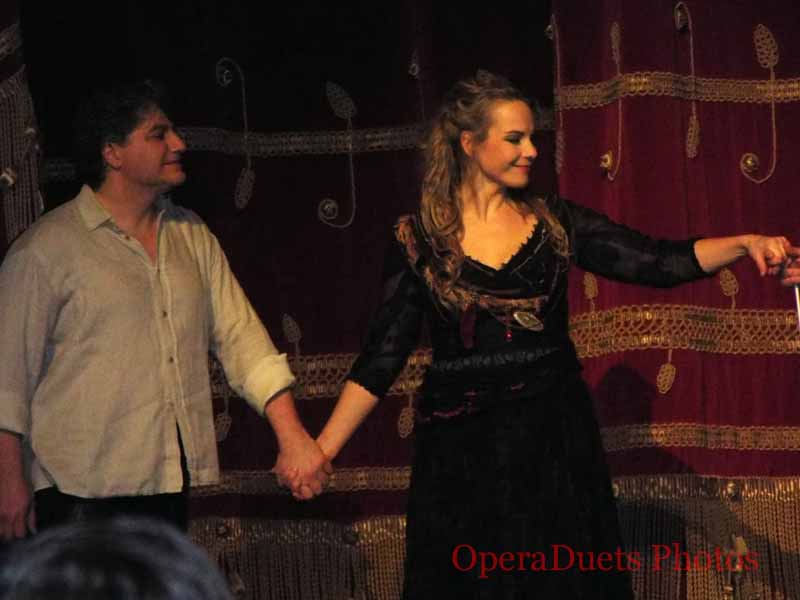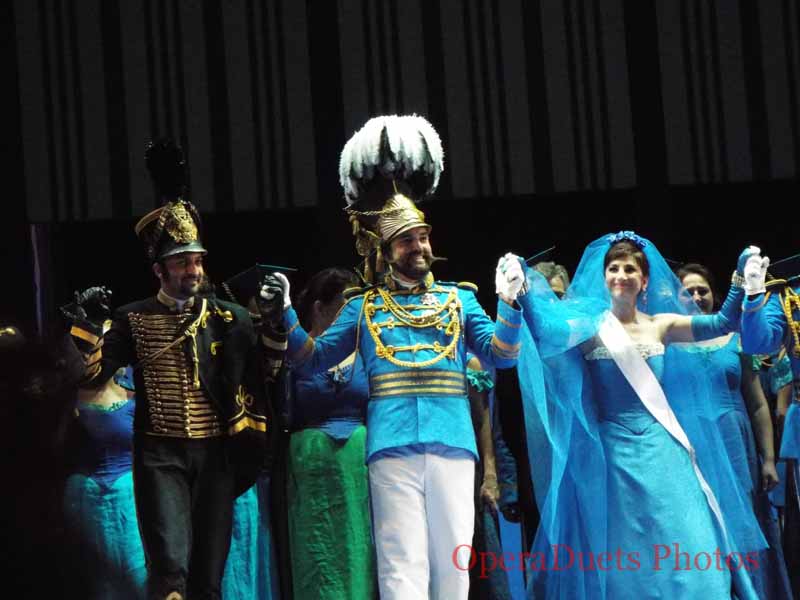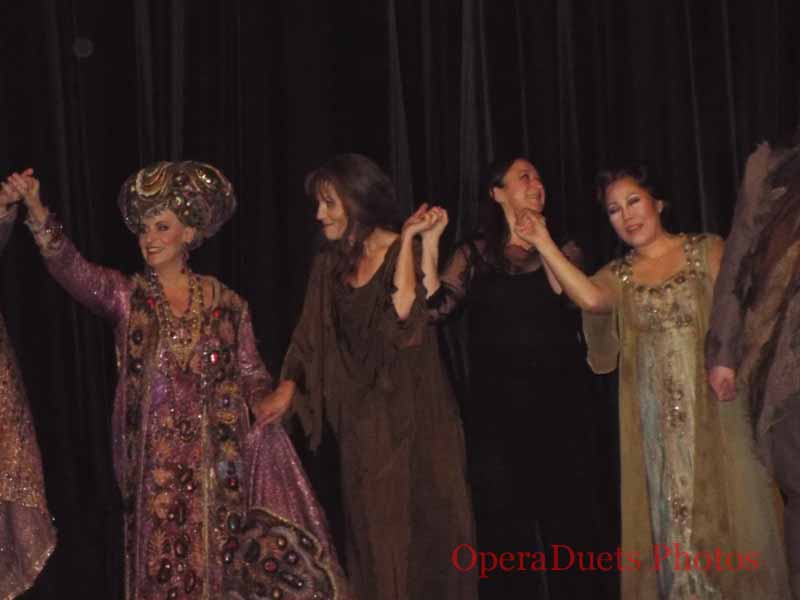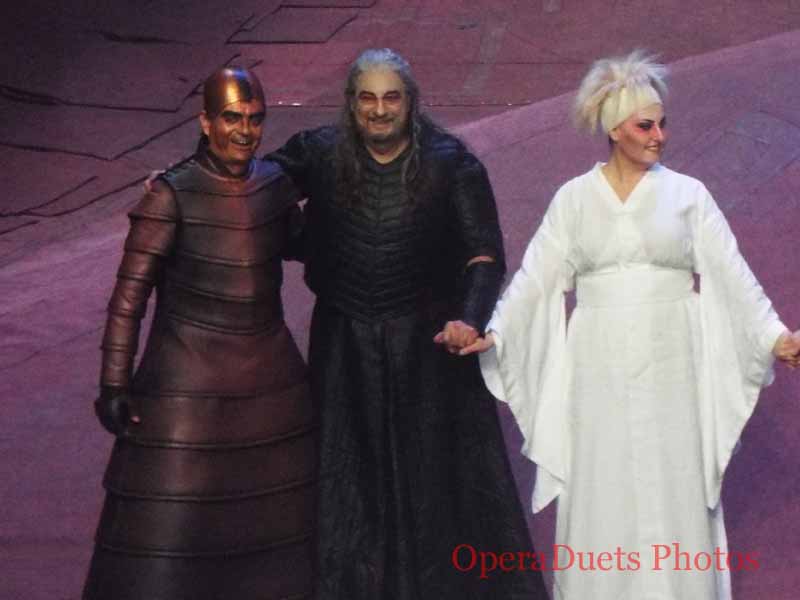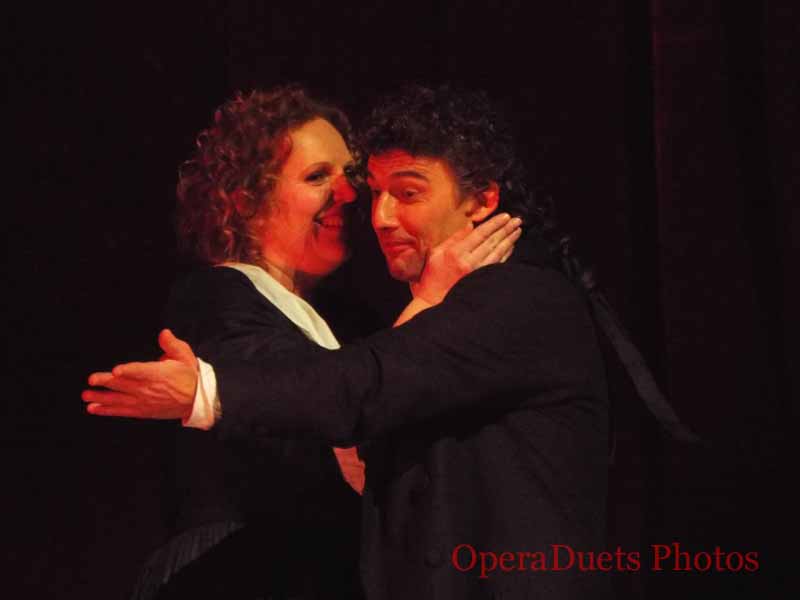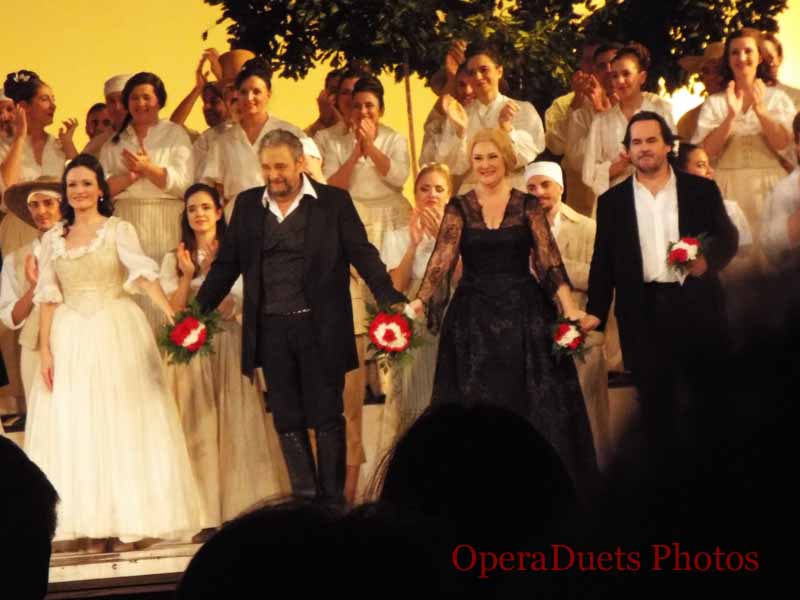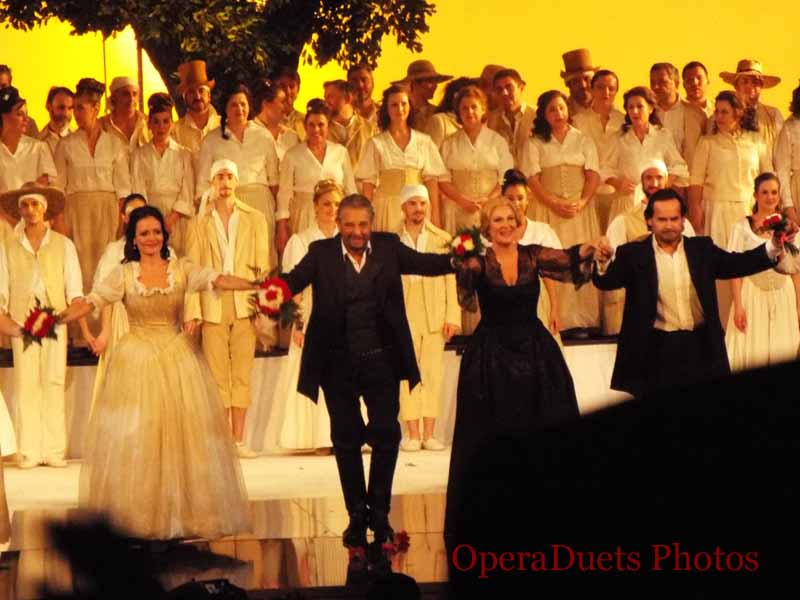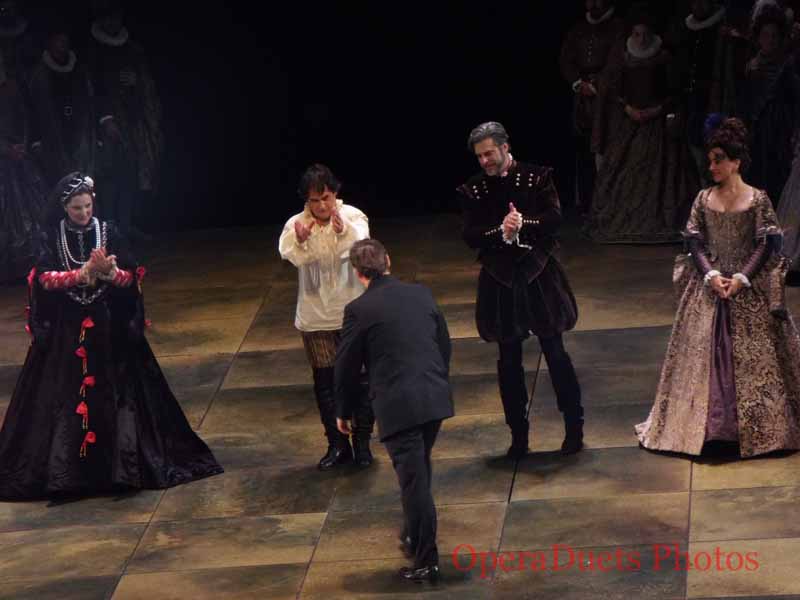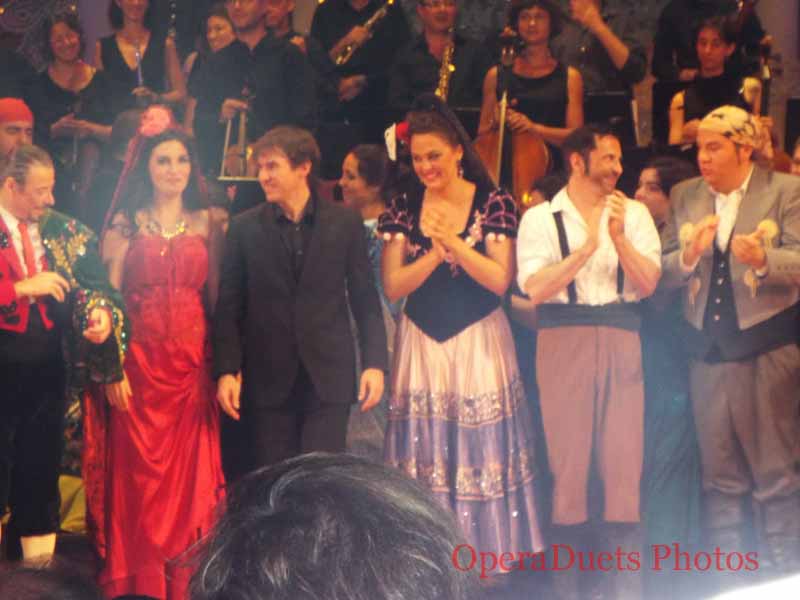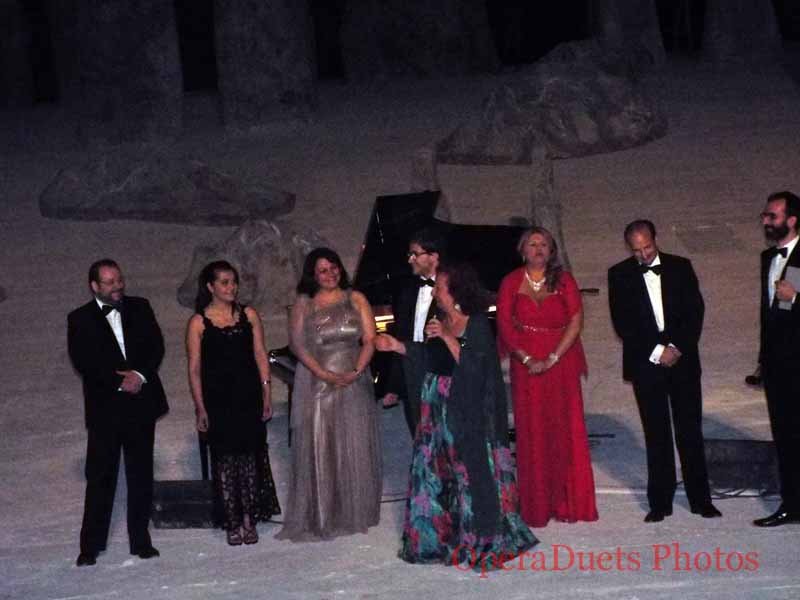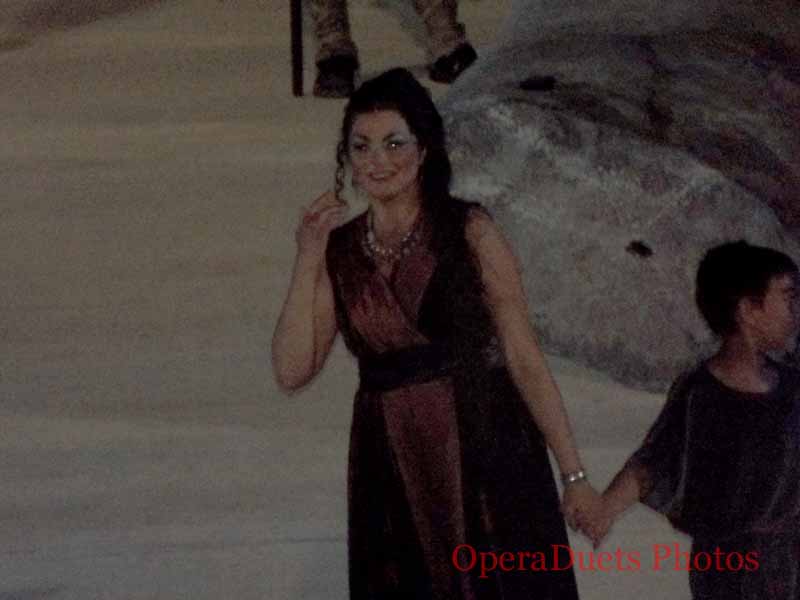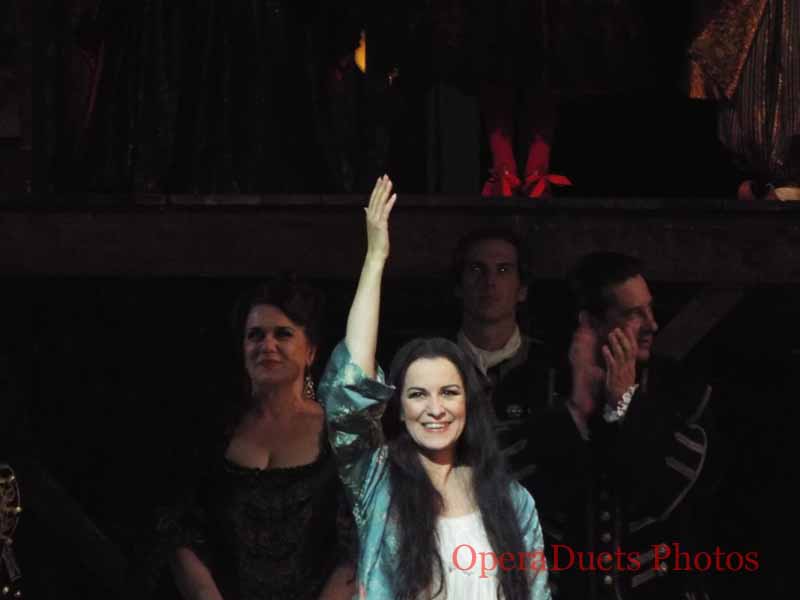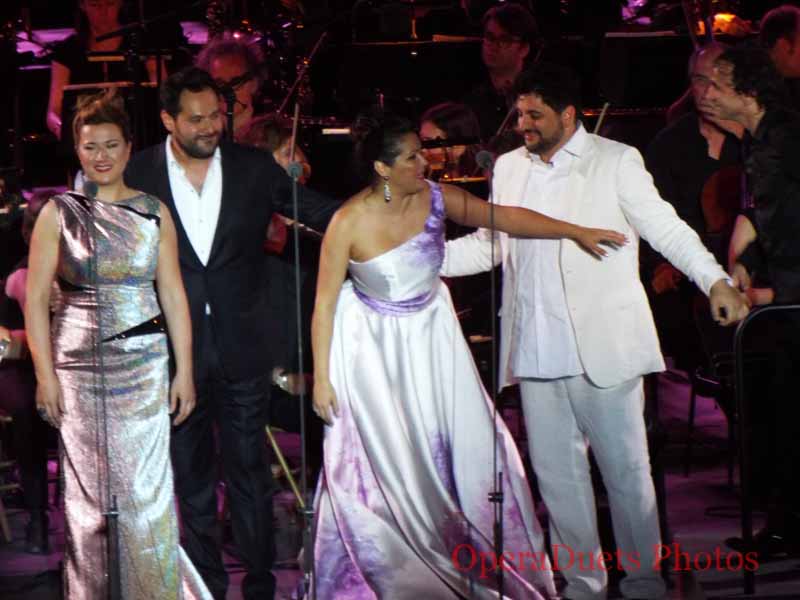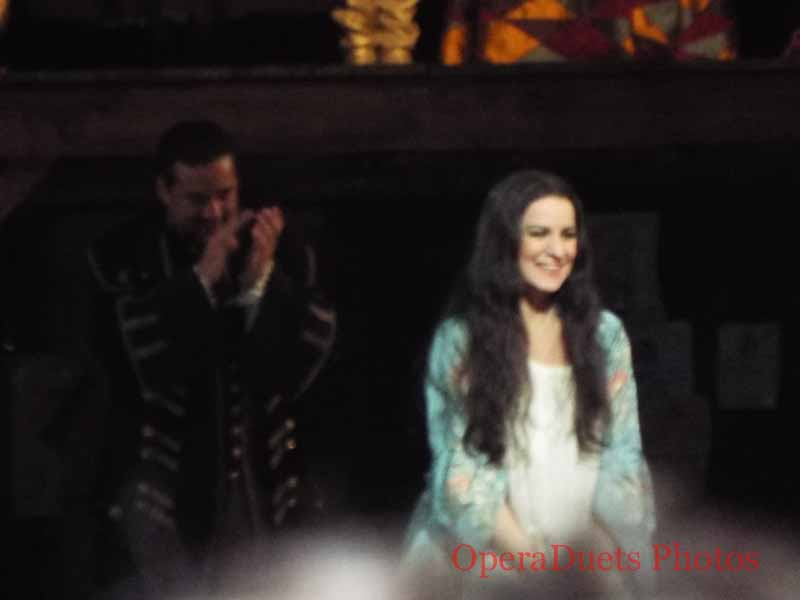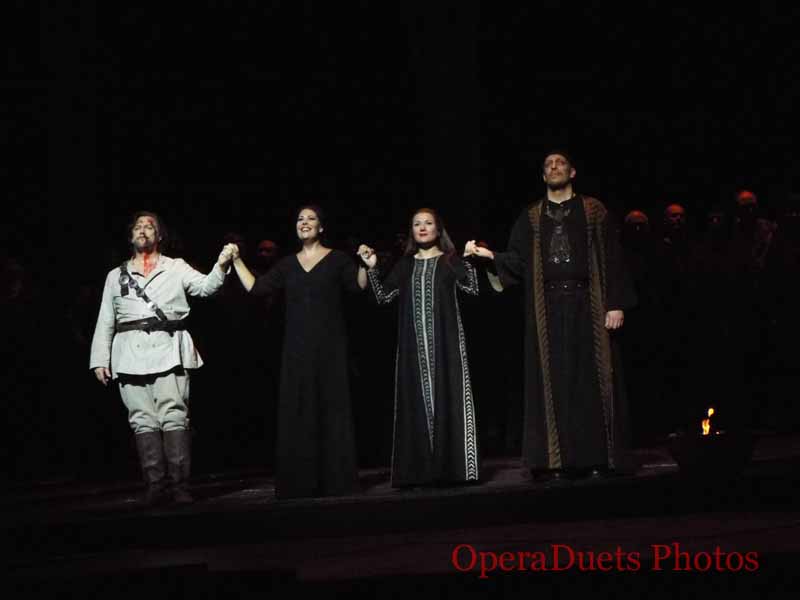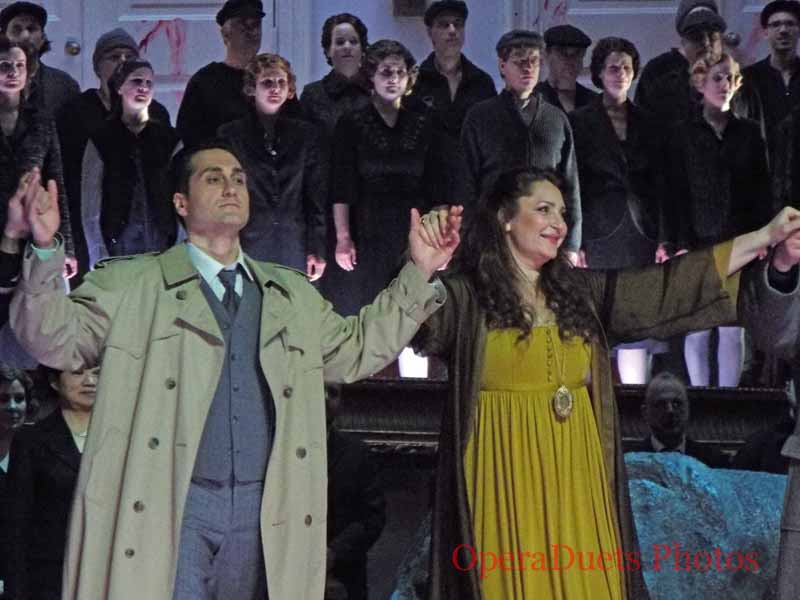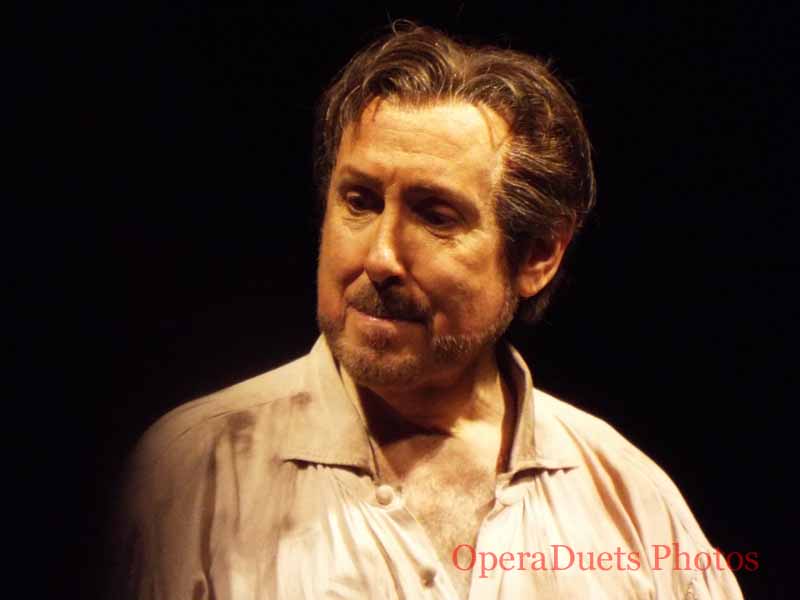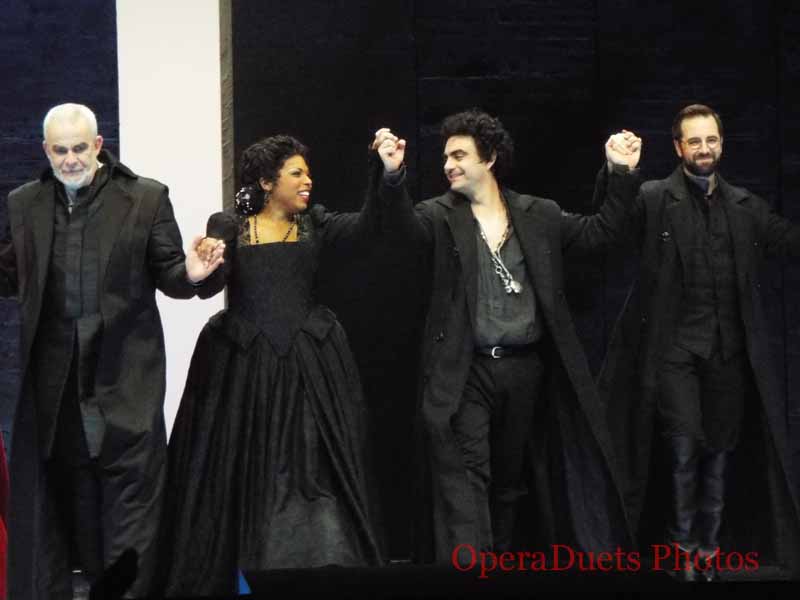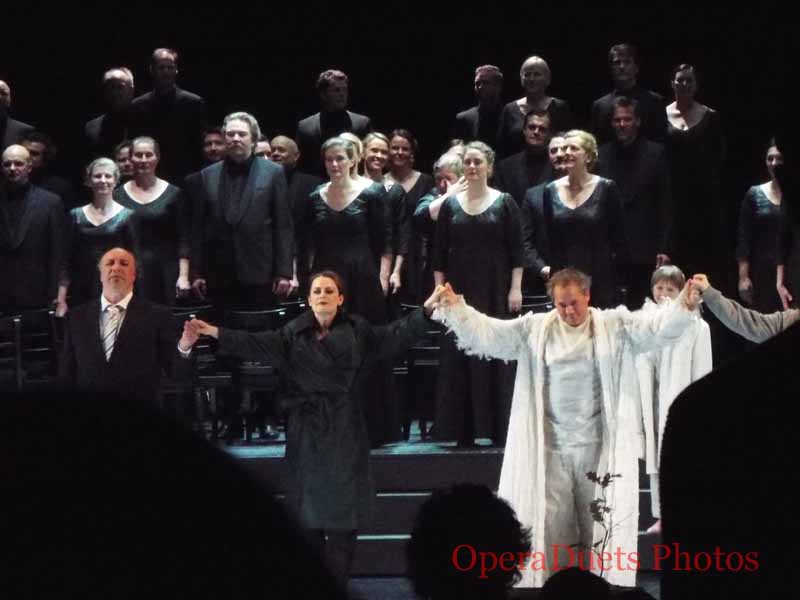2015-04-11 Lohengrin (Wagner), Den Norske Opera & Ballett (Oslo)
Heinrich der Vogler = Magne Fremmerlid
Lohengrin = Paul Groves
Elsa von Brabant = Nina Gravrok
Friedrich von Telramund =
Ole Jørgen Kristiansen
Ortrud = Elena Zhidkova
Heerrufer = Yngve Søberg
John Helmer Fiore, conductor
Regie- Johannes Erath
Scenography - Kaspar Glarner
Costumes - Christian Lacroix
A wonderful Lohengrin in Oslo, or was it?
The production was in black and white mostly except that Ortrud was dressed in green. Even as the prelude started we were shown that Ortrud was most probably the villain and also at other times we were shown flashbacks to the past were Telramund tried to kiss Elsa and Ortrud took the brother of Elsa. Directors of to today do not think the audience are too bright so they have to show it all.
The problem for me was Elsa. All that running around, being crazy, and fainting and then suddenly she was able to show some dignity as a noble woman. Only men think women faint that easily. It was true at one time when women's dresses and so on was so tight that taking a deep breath was impossible. With more loose dresses women do no longer faint at all kind of moments. Nina Gravrok was Elsa von Brabant. First act aria "Einsam in trueben Tagen" was sung very staccato and with no legato line that it never seemed to become the first class aria it is. Even as it is years since I listened to Jessye Norman on CD and almost a decade since I saw it in Vienna with Soile Isokoski I remember the celestial feeling this arias gives you when sung by these too first class opera singers. Luckily as the opera progressed and Elsa did not have to act so absurdly Nina Gravrok singing improved. Unfortunately I expected more of a professional singer: to be able to sing legato and give every line their right form even if the directors demands you to run around onstage as a madwoman.
Elena Zhidkova was Ortrud. What more to say about this great singer? She acted and sang just as you would dream a Ortrud being able to do. She was helped by the director allowing her to play the role straight up without inventing stupid moves. If one wanted more and/or different from Ortrud one would have to falk to Richard Wagner, the composer who also wrote the text to his operas.
Ole Kristian Jørgensen was Friedrich von Telramund. Again a great singer / actor who was allowed to bring the best of himself without the director inserting himself. In short Ortrud and Friedrich von Telramund was utterly believable as a couple and in themselves.
Magne Fremmerlid was King Heinrich der Vogler. He did it well but I missed hearing the full sound of his large voice. Was it deliberate or was something not right? Most importantly it was nothing that diminished him, he was perfectly put in the right spot and did not waiver.
Paul Groves was Lohengrin. What should I say about Paul Groves as Lohengrin? That he was great enough? Or... Was he perfect or was he lacking as Lohengrin. In many ways that is the whole question of Lohengrin himself. The perfect knight of the Grail or the imperfect human being.
Lohengrin could be the story of a purity society. I never noticed Telramund admitted to force himself on Elsa just after realizing the boy, the duke of Brabant disappearing. Telramund has a claim of Brabant especially when the boy, the heir, is gone missing. And if Elsa accepts him as husband then voila Telramund becomes Brabant. Elsa rejects Telramund and that "tells" him that she must have killed her brother. Thus disgusted with Elsa, the young woman and heiress of Brabant, he married a woman much more to his liking. No he is still pure-thinking when the other woman is Otrud, the last offspring of those who ruled Brabant before it was Christened.
Telramund tells this directly to the king with everybody hearing and Telramund is still considered brave etc man. His purity is intact but Elsa's purity is in doubt. Should I even have to call the witness who is said saw the deed. Of course not. To doubt a man on his word. What an horror! Of course it was Ortrud behind him all the times. Elsa is not allowed to be anything except crazed after her unknown knight. Wagner makes her such, and the director drinks it up and does not allow much dignity to poor Elsa. Lohengrin appears an otherworldly creature for the people of the times of Lohengrin. As a modern woman he appears as an arrogant idiot. The adieu to the swan, the looking into Elsa's eyes to see she is innocence. Wow. Well the singing was great enough and the director did not destroy the moments so one can enjoy it. To care for Elsa or Lohengrin that is not so easy.
Lohengrin has won the fight. Of course the men had to fight and they had to call the fighting God's courtroom. What could possibly go wrong? Telramund as so many men of opera is incapable of understanding the fault was their own, so he accuses his wife. As a Christian he believes that God must have fought hard on Lohengrin side since he seemed to be such a wimp. When Ortrud who hated this new God and religion, tells him that Lohengrin used sorcery to win Telramund jumps up, yeah! He was not wrong, he was wronged. Then she has her man back and can get him to do what she wants.
After being weak and foolish Elsa, who is getting married, now has her dignity in place and can act like the nobility she is. Ortrud worms her in with her woe is me, you getting married, but my poor, poor husband. Elsa being noble allows Ortrud to come in become part of the bride parade. Being meek is not something Ortrud does well so she shows her real colors when Elsa is going to church or from church and accuses Elsa of all kinds of things while giving the girl doubt about her man, why not know his name and family and whether he is a noble at all. Telramund works on the men, this Lohengrin is he really..
Wedded bliss, no bed. They are alone for the first time EVER. And now married. Both now nothing except that GOD is important. The love duet is filled with God and purity. They love each-other, but always remember, it is pure love. Love is not sex, beds are not needed, what two people need is to have a talk, not THE TALK, but to talk about we love God and trust God. Then Elsa topples down and goes completely Eve to her Adam. I love you so much as I would rather die than tell anyone your name and station, but please tell me who are you. The forbidden fruit, the forbidden question. Alas, now all our happiness is gone!!! (Did I miss something, when did all that happiness happen? Oh, I must have blinked)
The king had come to Brabant to make it whole by deciding who will be the duke there just sow that Brabant would also be part of the German war against Hungary. Now that Lohengrin is married to Elsa and Telramund is banished, they can all happily go to war. Lohengrin killed Telramund after he jumped to kill Lohengrin when Elsa popped the wrong question. Now he asks was he right to kill the banished man that tried to kill him. Yes. But the Defender of Brabant as asked the brabantian to call him, ask also did they all hear Elsa swear to never ask. Since she has now asked he must go away but he ask them to deem if he was noble enough. Of course, he is. Knight of the Grail, and his father Parsifal who is crowned there. Is Elsa totally defeated as Lohengrin, who we all now know as Lohengrin, goes away with his swan. Lohengrin also tells now if only she had waited a year her brother would have come home. Defender, because the brother is still the Duke. Tell your brother all about me, Lohengrin says. Ortrud tells all that the brother was the swan. Lohengrin frees him. Elsa dies.
No happy ending for you!!!
OD Travel & Photos
Original blog post
For more reviews from my travels, see www.operaduetstravel.com
If you want to see more photos from my OperaDuets Travels, go to www.operaduetsphotos.com
